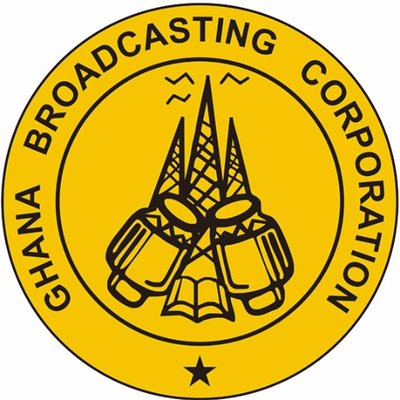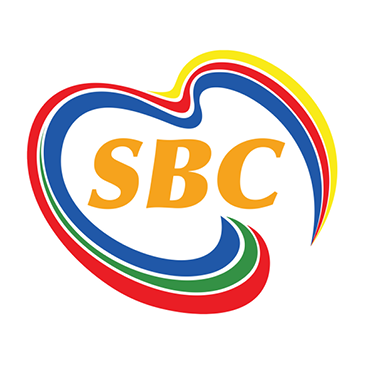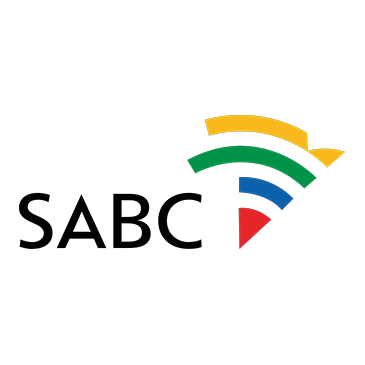Africa
Public Media Worldwide
National Networks
2 national TV channels
5 regional TV channels
2 national radio stations
14 regional radio stations
Online
Ghana Broadcasting Corporation (GBC)
Radio | Television | Online
23
broadcasts
in 23 Ghanaian
languages
50%
audience share
of GTV &
GTV Sports+
30th
RSF World
Press Freedom
ranking
Overview
Updated: July 2021
Founded in 1935, the Ghana Broadcasting Corporation is the country’s oldest state-owned broadcaster and describes itself as ‘The Authentic and Trusted Voice Of Ghana.’
While GBC has in the past been known to operate under the government’s control, the broadcaster is now mandated to carry out its public service role to inform, educate and entertain the Ghanaian public. GBC operates seven television channels, including the national GTV, Obonu TV, which is an exclusive regional channel that promotes the Ga-Dangbe language and culture as well as Ghana Learning TV, which was launched in April 2020 to provide educational content to school children across all of Ghana’s 16 regions during school closures amid the COVID-19 pandemic. GBC also operates 2 national radio channels alongside 16 regional and community FM radio channels.
The broadcaster is funded by a TV licence and commercial revenue. However, in recent years, there has been strong opposition against paying the licence fee amid debates about how it is collected. These funding pressures have led to some concerns about the quality of GBC’s content and the organisation’s viability.
In July 2020, GBC was sent a directive by the Ministry of Communications ordering the broadcaster to reduce the number of channels it operates on the national Digital Terrestrial Television (DTT) by half, stating that the spectrum was full and that the government needed to free up space in order to broadcast important messages to the public. The directive was suspended following widespread criticism of the government’s undue interference.
In detail
Click on the headings below for more information
Ownership: Government of Ghana
Ghana has one of the freest media landscapes in Africa – and worldwide. It has maintained 30th place in RSF’s 2021 World Press Freedom Index. The public broadcaster is also protected from political or editorial interference under the Ghana Broadcasting Corporation Act 1968 and the 1992 Constitution as well as other legal provisions. The National Media Commission (NMC) is the regulator in Ghana that oversees media organisations in the country.
GBC is funded by a TV licence fee, which costs GHC36 (GBP6) annually and is supplemented by commercial revenue.
Ghana’s Information Minister, Mr. Kojo Oppong-Nkrumah, is urging the GBC to clarify its identity and outline future plans for its growth. Oppong-Nkrumah has also suggested that the National Media Commission needs to set up a committee to assess GBC’s performance in recent years and address current challenges. Meanwhile, rumours about privatising GBC have been de-bunked, and GBC’s Director-General, Professor Amin Alhassan has stated that the public broadcaster requires ‘… a deliberate government intervention in key areas like procuring of equipment, payment of electricity, as well as funding for their long-service award programme to be more productive.’
Other reports revealed that the GBC needs around GHC600 million for the live coverage of the 2020 Ghanaian Election Petition. In other news, GBC has been increasing its collaborations with different sectors. In early 2021, GBC announced a collaboration with the University of Environment and Sustainable Development to promote science programmes and support education in Ghana.
https://rsf.org/en/news/who-owns-media-ghana
https://www.publicmediaalliance.org/focus-on-psm-ghana/
https://www.devex.com/organizations/ghana-broadcasting-corporation-gbc-152860
GBC: The Authentic and Trusted Voice Of Ghana.
https://www.primenewsghana.com/general-news/what-should-know-about-tv-licence-in-ghana.html
National Networks
3 national TV channels
10 national radio channels
Community radio stations
Online
Namibian Broadcasting Corporation (NBC)
Radio | Television | Online
78%
reach across
the country
via radio
10
different languages
for radio
broadcasts
24th
Namibia has
the highest press
freedom ranking in
Africa (RSF)
Overview
Updated: July 2021
The Namibian Broadcasting Corporation (NBC) is Namibia’s national public broadcaster. Entering its 30th year, NBC was established in 1991 – one year after Namibia gained independence – to inform, educate and entertain the Namibian public and to create a shared national and cultural experience.
Despite Namibia being one of the most sparsely populated countries in the world, NBC’s radios manage to reach nearly 80% of the population. Community-based radio stations are located around the country and many broadcast to specific language groups and communities. NBC’s TV services also offer programming in indigenous languages. This is part of NBC’s mandate to cater for minority communities.
While Namibia remains Africa’s highest ranked country for media freedom (RSF World Press Freedom Index 2021), the public broadcaster has not been insulated from occasional attempts at editorial interference. Yet, NBC has demonstrated its ability to protect its editorial independence and its commitment to key PSM values.
In detail
Click on the headings below for more information
Ownership: Government of Namibia
NBC is regulated and independently governed by the Namibian Broadcasting Act No. 9 of 1991. The public broadcaster is supervised and controlled by the NBC Board of Directors. The Minister of Information and Communication Technology appoints the Board members for a five-year period.
“The NBC Board, in turn, appoints a Director General. This Director General, the chief executive officer, is a member of the Board; he is, however, not entitled to exercise a vote at board meetings.”
[Text sourced from NBC]
NBC is primarily funded by an annual state subsidy. This is supplemented by an annual television licence fee, which costs N$ 204 (£12), although there are concessions for pensioners, disabled persons and households with multiple TV sets. Other sources of income derive from commercial activities including airtime and programme sales and renting out transmitters.
Broadcasting to around 1.6 million people daily on all its platforms, NBC reaches nearly 80% of the population. It also has a strong presence on all social media.
In recent years, NBC has dealt with a worsening financial crisis. In 2019, this resulted in the public broadcaster announcing cost-cutting measures, including reducing or suspending airtime across its radio and television channels. Some of these measures have since been lifted. Yet from 22 April 2021, the majority of NBC workers went on industrial action for a month on grounds of unfair working conditions after a series of negotiations between NBC management and the Namibian Public Workers Union (NAPWU) broke down. The leadership of both parties have since come to an agreement, which includes NBC management looking into reviewing contracts – one of the workers’ grievances was better job security. However, other demands, such as a salary increase and more employee benefits, have not been reviewed.
Even though NBC has risen to the challenge of covering COVID-19 by making information available in local languages and providing special COVID-19 programmes, the pandemic has further added to its funding woes due to declining advertising revenue and internet connectivity issues. According to Director-General, Stanley Similo, one of the NBC Board’s key priorities is for NBC to be a more “tech-savvy” public media organisation.
https://www.nbc.na/corporate/tv-licensing.76
Email correspondence with NBC
National Networks
2 TV channels
2 radio stations
International Networks
Broadcasts international TV services including DW, TV5 Monde and France 24
Relays 2 international radio stations: Radio France International (RFI) and BBC World Service on FM.
Online
Social media
Radio apps
Seychelles Broadcasting Corporation (SBC)
Radio | Television | Online
94%
watch SBC News
consistently, often
or sometimes
60%
audience are
satisfied with
SBC
+11
Seychelles is now
52nd in RSF's
2021 World Press
Freedom Index
Overview
Updated: April 2021
The Seychelles Broadcasting Corporation (SBC) is the national public broadcaster of the Republic of Seychelles. Across two radio and TV channels, SBC offers a diverse range of programme genres, including news and currents affairs, factual and learning, childrens, religion and ethics, music, drama, and comedy. According to SBC, in 1992, “Following the re-introduction of multiparty politics, RTS (a government station run by the Ministry of Information) became the Seychelles Broadcasting Corporation (SBC), a public broadcasting service.”
In its first edition of Editorial Guidelines (2020), SBC’s Chairman of the Board of Directors, Gérard Lafortune, wrote that “The SBC belongs to the people of Seychelles… It comes during a period of rapid political transformation where the SBC’s role is under close scrutiny. In the current transition from being a State Broadcaster to an independent and impartial National Broadcaster, public perception will take time to readjust. The strict adherence to these guidelines is fundamental in this process.” The Editorial Guidelines sets out SBC’s standards to ensure that its content is produced with “fairness, accuracy and impartiality.”
In detail
Click on the headings below for more information
State-owned
The SBC Amendment Act 2017 acts as the premise for ensuring SBC’s commitment to objectivity and political neutrality and changed the way that the independent board of directors were appointed (under the SBC Act 2011, board members were appointed by the President of the Republic of Seychelles).
Article 168 of the Constitution also guides SBC and makes provisions for it as an independent state-owned broadcaster. For example, Article 168(1) ensures that publicly funded media organisations operate independently of the state and are free from political or other influences. Meanwhile, Article 168 (2) provides facilities for a diversity of views within the public broadcaster.
However, in its three-year Strategic Plan, SBC acknowledges that the broadcaster “should be represented by its Board (and CEO) during National Assembly summons. This should provide further reassurance to all stakeholders that the National Broadcaster is not under the government’s control.”
SBC receives funding from the government budget and from advertising revenue.
In its three-year Strategic Plan, SBC states its financial autonomy: “The SBC’s editorial independence is better safeguarded by a funding policy that does not make it dependent on the politicians of the day for approval of its funding for the coming year. SBC’s funding should ideally be via a medium-term funding mechanism that commits expenditure to the Corporation for four or five years or so, supported by an interim spending review.”
2/3 of its annual budget allocation is spent on staffing costs. Part of its ongoing funding strategy includes monetising its local production content and archives in order to make up for shortfalls in programme funding and reviewing staffing costs.
According to SBC’s Audience Survey Report 2020, around 94% of respondents watch SBC News consistently, often or sometimes and 70% of respondents watch SBC TV (combined SBC1, SBC2, SBC3) for 2 or more hours on average in a day – an increase of 6% from 2019.
Ahead of the general elections in October 2020, SBC published a press release to reaffirm its commitment to performing its mandate “…impartially, independently and in the public interest during the election period and beyond”, following criticism related to its election coverage. Looking ahead, its priorities include increasing the quality and quantity of its output – particularly its local content, ensuring that SBC is fit for a digital future, strengthening its governance and improving its financial situation.
National Networks
5 Television stations
19 radio stations
Parliamentary channel
International Networks
Available in Botswana, Lesotho, Mozambique, Namibia, Zimbabwe, Eswatini
Online
South African Broadcasting Corporation (SABC)
Radio | Television | Online
78%
audience trust
in SABC News
1.4 m
subscribers to SABC News
YouTube channel
73.2%
SABC Radio Stations share
of the radio market
Overview
Updated: January 2022
Since its first in-house news broadcast in 1950, the South African national public broadcaster, SABC, has enjoyed increasing audience growth. According to RISJ’s 2021 Digital News Report SABC News reaches 53% of the population offline and 51% online weekly. SABC News is also voted the 4th most trusted news brand in South Africa.
At a time when public broadcasters worldwide are implementing or enhancing their digital migration plans, SABC is already offering a myriad of non-broadcasting services via the SABC News YouTube channel, which has more than 1.4 million subscribers; across social media accounts, mobile devices, and streaming on Telkom One, DSTV Now and other platforms. It has also announced plans to launch its own video streaming service,
Amid the COVID-19 pandemic, SABC demonstrated its valuable contribution to society by expanding its services to ensure that the public remained informed, educated, and entertained during South Africa’s national lockdown. SABC’s News and Current Affairs services were immediately made available on free-to-air television channels and it launched a dedicated multimedia learning initiative in collaboration with the South African government to assist children with distance learning during school closures. SABC also continues to produce award-winning youth-oriented programming aimed at the near 30% of South Africans that are under the age of 15.
But in recent years, the organisation has come under considerable financial difficulties, which came to a head in 2019 when it received a government bailout in order to pay outstanding debts. In March 2021, SABC completed a retrenchment process, with 621 permanent employees leaving the organisation. In April 2021, it began implementing its new ‘fit-for-purpose’ structure. According to recent reports, the corporation has implemented around 93% of its turnaround plan. There has also been a growing debate about how SABC’s TV licence fee should be defined or designed in light of growing concerns about its appropriacy in the digital age, and high evasion rates.
In detail
Click on the headings below for more information
SABC is a state-owned company – with the government as its sole shareholder – and is guided by corporate governance codes. The corporation is governed and controlled by a 15-member (12 non-executive and three executive) board of directors, in accordance with the Broadcasting Act No. 4 of 1999.
According to SABC, “the statutory duties, responsibilities and liabilities imposed on the Directors of the SABC by the Companies Act No. 71 of 2008, as amended, are augmented by those contained in the Public Finance Management Act (PFMA), No. 1 of 1999, as amended.”
Licence fee payments contribute to around 15% of SABC’s total income, which are mostly supplemented by commercial revenue and partly state subsidies.
Findings from the Annual Report 2020/21 revealed that ‘in the prevailing economic environment, total revenue declined by 12% year-on-year to R4.97 billion’ and ‘TV licence revenue declined by 0.4% year-on-year to R 788 million.’
The public broadcaster continues to seek other avenues of revenue generation, including more robust commercial funding as well as explore alternative models of public funding.
SABC Radio enjoys a 73.2% radio market share. According to the broadcaster, all adults (15+ years) spend 3 hours and 36 minutes listening to radio across all its stations, amounting to a 92% (37.5 million) weekly reach and a 73% daily reach (29.9 million) on weekdays.
According to RISJ’s 2021 Digital News Report SABC News reaches 53% of the population offline and 51% online weekly. SABC News is also voted the 4th most trusted news brand in South Africa.
The public broadcaster continues to grapple with financial constraints, exacerbated by the COVID-19 pandemic. In September 2021, the South African government conducted a consultation on the proposed South African Broadcasting Corporation Soc Ltd Bill, 2021. The Public Media Alliance, along with various other stakeholders, responded to the draft bill, welcoming the need to discuss legislation surrounding the SABC, but also expressed concerns that the proposed bill needed to be written in parallel with the White Paper on Audio and Audiovisual Content Services in South Africa, to ensure that the country has a national public media organisation fit for a digital future.
There were also concerns about the safety of journalists working for SABC during nationwide protests last year.
Header Image: South African Broadcast Corporation (SABC) Television Park in Auckland Park, Johannesburg. It offers television facilities in Broadcast, Production and Post-production for SABC1, SABC2, SABC3, SABC Encore, SABC Sport, SABC News, SABC Education and all SABC Content in South Africa. Credit: THEGIFT777/iStock



